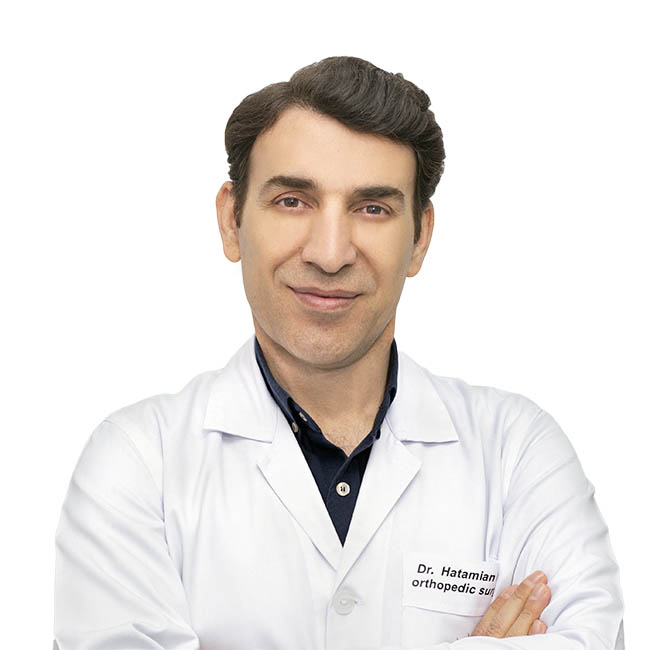Parkinson
What is Parkinson's?
Parkinson's disease is a brain disorder that causes limb tremors and stiffness, as well as problems with walking and coordinating movements.
Parkinson's symptoms usually start early and worsen over time. A person may also have symptoms such as mental and behavioral changes, sleep problems, problems, memory problems and problems.
Both men and women can develop Parkinson's disease. However, this disease is about 50% more common.
One of the identified risk factors for Parkinson's disease is age. Most people with Parkinson's first develop the disease by age 60, but about 5 to 10 percent of people with Parkinson's develop early-onset disease, before the age of 50. Early-onset Parkinson's is, but not always, hereditary, and some types are linked to specific gene mutations.
What is the cause of Parkinson's disease?
Parkinson's disease occurs when nerve cells in the basal ganglia (basal ganglia); The area of the brain that controls body movements becomes affected or dies. Normally, these nerve cells (neurons) produce an important chemical called dopamine. Dopamine plays a vital role in coordinating and regulating body movements. The death or function of these neurons reduces the production of dopamine in the brain, and this causes the problems caused by Parkinson's disease. The cause of the death of dopamine-producing neurons is still unknown.
In addition, in Parkinson's, the nerve endings that produce norepinephrine are also lost. Norepinephrine is the primary chemical messenger of the sympathetic nervous system that controls more than just body functions such as heart rate and blood pressure. Loss of these nerve endings causes some of the non-motor symptoms of Parkinson's, irregular pressure drops, low blood pressure in the gastrointestinal tract, and a drop in blood pressure when standing up (from a sitting or lying position).
In many brain cells of people with Parkinson's, there are Lewy bodies. Lewy bodies are abnormal masses of breeders. Research into the normal and abnormal functioning of these growths and their relationship to medical genetic mutations on Parkinson's disease and dementia caused by Lewy bodies is understood.
Some cases of hereditary Parkinson's appear to occur at random in most cases and do not appear to be an inherited disease, and in a small number of cases specific gene mutations can be traced. Many people believe that Parkinson's disease is caused by a combination of genetic and environmental factors, such as exposure to toxins.
What are the symptoms of Parkinson's disease?
Parkinson's disease has four main symptoms:
Shaking hands, arms, legs, jaw or head
Rigidity of limbs and trunk
slow movement
The difference in coordination and coordination that may lead to falls
Other symptoms may include complications and other mood changes, difficulty swallowing, chewing, and speaking. Disease problems or constipation; Skin problems and sleep disorders.
Parkinson's symptoms and how quickly the disease progresses vary from person to person. Sometimes certain people ignore Parkinson's as a sign of normal aging.
The initial symptoms of Parkinson's disease are mild and occur. For example, a person may feel a slight tremor or have trouble getting up from a chair, or they may notice that they speak too slowly, or that their handwriting has changed. Friends or family members may be the first to notice changes in a person with Parkinson's. They may notice that the person's face does not feel normal or that the person does not move their arms or legs.
Many people with Parkinson's find that before experiencing body stiffness and limb tremors, they experience symptoms of sleep problems, constipation, and a decreased sense of smell.
People with Parkinson's disease have a parkinsonian gait. Parkinsonian gait refers to bending forward, taking quick and small steps, and reducing arm movements. The person may also have difficulty starting or continuing to move.
Symptoms start on one side of the body or even only in one limb, eventually affecting both sides as the disease progresses. However, symptoms may be more severe on one side than the other.
Is there a cure for Parkinson's disease?
Although there is no definitive cure for Parkinson's disease, medications, surgery, and other treatments can often relieve some of the symptoms.
medicines
Medications prescribed for Parkinson's include:
Drugs that increase dopamine levels in the brain
Drugs that affect other brain chemicals
Medications that help control immobility symptoms
The main treatment for Parkinson's is levodopa. Nerve cells use levodopa to make dopamine. Levodopa is usually taken in combination with another drug called carbidopa. Carbidopa reduces some of the side effects of levodopa therapy (such as nausea, vomiting, low blood pressure, and restlessness) as well as the amount of levodopa needed to improve symptoms.
Due to the chronic and progressive nature of Parkinson's disease, almost all sufferers must take medication under the supervision of a doctor for the rest of their lives. People with Parkinson's should never stop taking levodopa (and other prescribed medications) without telling their doctor, because stopping suddenly can cause serious side effects, such as inability to move or breathing problems.

